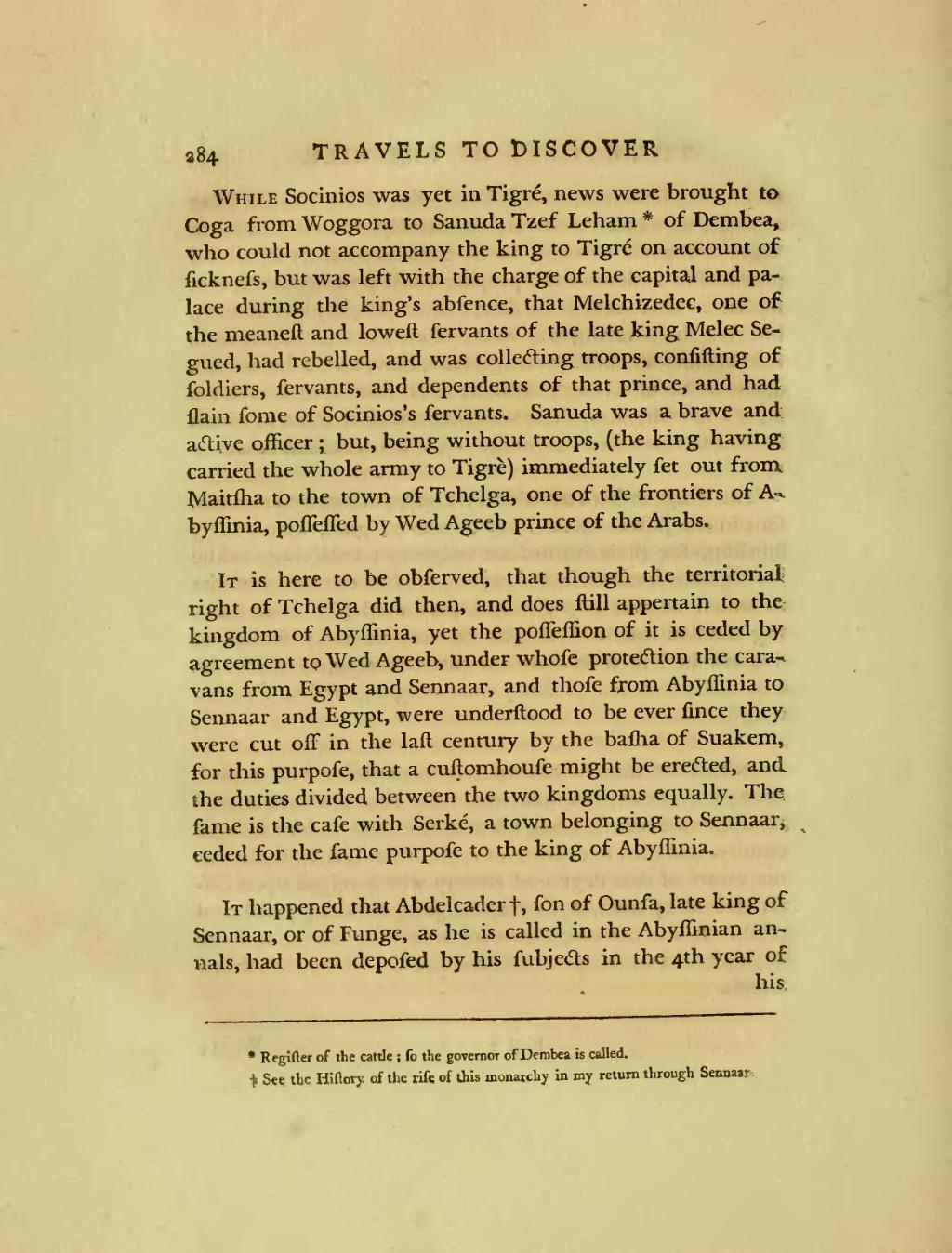While Socinios was yet in Tigre, news were brought to Coga from Woggora to Sanuda Tzef Leham[1] of Dembea, who could not accompany the king to Tigre on account of sickness, but was left with the charge of the capital and palace during the king's absence, that Melchizedec, one of the meanest and lowest servants of the late king Melee Segued, had rebelled, and was collecting troops, consisting of soldiers, servants, and dependents of that prince, and had slain some of Socinios's servants. Sanuda was a brave and: arrive officer; but, being without troops, (the king having carried the whole army to Tigre) immediately set out from Maitsha to the town of Tchelga, one of the frontiers of Abyssinia, possessed by Wed Ageeb prince of the Arabs.
It is here to be observed, that though the territorial right of Tchelga did then, and does still appertain to the kingdom of Abyssinia, yet the possession of it is ceded by agreement to Wed Ageeb, under whose protection the caravans from Egypt and Sennaar, and those from Abyssinia to Sennaar and Egypt, were understood to be ever since they were cut off in the last century by the basha of Suakem, for this purpose, that a customhouse might be erected, and the duties divided between the two kingdoms equally. The same is the case with Serke, a town belonging to Sennaar, ceded for the same purpose to the king of Abyssinia.
It happened that Abdelcader[2], son of Ounsa, late king of Sennaar, or of Funge, as he is called in the Abyssinian annals, had been deposed by his subjects in the 4th year of
